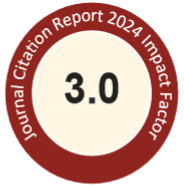Abstract
Ten milkfish dumpling products purchased from retail stores in southern Taiwan were collected to determine the occurrence of biogenic amines, histamine-forming bacteria, and adulteration of pork. This study showed the high contents of aerobic plate count (APC), total coliforms (TC) and Escherichia coli in tested milkfish dumpling samples, whereas the average content of various biogenic amines in all tested samples was < 1.6 mg/100 g (< 0.05 to 1.54 mg/100 g). Three histamine-producing bacterial strains (2 isolates of Raoultella ornithinolytica and 1 isolate of Enterobacter aerogenes) isolated from tested samples produced 276.6 ppm to 561.8 ppm of histamine in trypticase soy broth supplemented with 1.0% L-histidine (TSBH). Assay of multiplex polymerase chain reaction (PCR) revealed that the adulteration rates were 50% (5/10) for pork in milkfish dumplings. In addition, milkfish dumpling stuffing was inoculated with R. ornithinolytica at 5.0 log colony forming units (CFU)/g and stored at various temperatures from 4°C to 37°C to investigate bacterial growth and formation of histamine. The histamine contents quickly increased to higher than 50 mg/100 g in samples stored at 37°C and 25°C within 24 hours and 36 hours, respectively, as well as stored at 15°C within 48 hours. Therefore, bacterial growth and histamine formation were controlled by cold storage of the samples at 4°C. © 2016
ScienceDirect Link
Recommended Citation
Lee, Y.-C.; Chen, Y.-F.; Huang, Y.-L.; Kung, H.-F.; Chen, T.-Y.; and Tsai, Y.-H.
(2016)
"Hygienic quality, adulteration of pork and histamine production by Raoultella ornithinolytica in milkfish dumpling,"
Journal of Food and Drug Analysis: Vol. 24
:
Iss.
4
, Article 23.
Available at: https://doi.org/10.1016/j.jfda.2016.04.005
Creative Commons License

This work is licensed under a Creative Commons Attribution-Noncommercial-No Derivative Works 4.0 License.
Fulltext URL
https://www.sciencedirect.com/science/article/pii/S1021949816300576/pdfft?md5=dde9924240763f71465bfb4e837d648f&pid=1-s2.0-S1021949816300576-main.pdf
Included in
Food Science Commons, Medicinal Chemistry and Pharmaceutics Commons, Pharmacology Commons, Toxicology Commons


Abstract Image